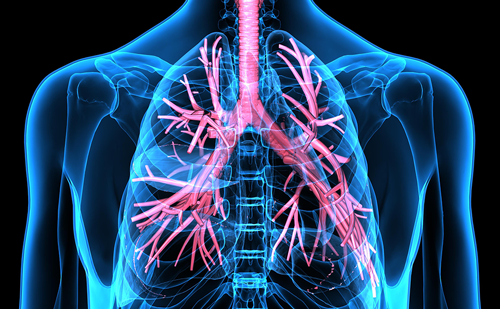Identifying drugs that control the progression of SARS-CoV-2 and its symptoms has been an urgent research priority during the coronavirus disease 2019 (COVID-19) pandemic. The RECOVERY study (Randomised evaluation of COVID-19 therapy [RECOVERY]; ClinicalTrials.gov identifier: NCT04381936) is the world’s largest clinical trial investigating treatments for COVID-19, with more than 40,000 participants across 185 trial sites in the UK, and is investigating a range of potential treatment options.1,2 Within its first 3 months, it found that dexamethasone significantly reduced mortality in patients who required oxygen therapy.3 The latest data from the study has shown that treatment with baricitinib reduces mortality in hospitalized patients with severe COVID-19. In this expert interview, Andrew Ustianowski discusses the baricitinib substudy and its findings.
Q. What is baricitinib, and what is the rationale for its use in the treatment of coronavirus disease 2019?
Baricitinib is a Janus Kinase (JAK) inhibitor. The JAK proteins are important transmembrane proteins that translate messages from the cytokines outside the cell to intracellular processes. They are implicitly involved in the inflammatory cascade, and JAK inhibitors have been researched and licensed for treating rheumatologic and skin diseases.4,5 We understood quite early during the COVID-19 pandemic that there are several stages of clinical COVID-19 in an individual. Early in the disease, its symptoms are related to the virus itself and viral replication; however, in a subset of individuals, they deteriorate because of an inflammatory response that is out of proportion to the virus, and people can develop an inflammatory or cytokine cascade that can result in them being hospitalized or in intensive care. Interfering with excessive inflammation is an important part of improving the disease outcome in such individuals.
Q. What were the aims, design and patient population of the baricitinib study within the RECOVERY trial?
The RECOVERY trial is a pivotal study that has informed many of the global guidelines for COVID- 19. It has looked at a variety of medications, including many that were repurposed from other indications, such as steroids and baricitinib. The study recruites any patients in the UK who are hospitalized because of COVID-19. The patient population is, therefore, very broad. It aims to determine whether there was an additive benefit of giving baricitinib to patients on top of standard care, which has changed over time. The primary outcome was mortality at day 28.
Q. What were the efficacy and safety findings of the study, and how do they compare with other data on baricitinib?
In the RECOVERY study, there was a 13% improvement in mortality in those who were randomized to baricitinib.6 Other studies investigating baricitinib have also found improvements ranging up to a 40% reduction in mortality.6 Investigators organized a meta-analysis incorporating the RECOVERY data with other studies looking at baricitinib, which overall reported a 20% improvement in mortality with baricitinib compared with control.7 There were no safety signals of concern. There had been concerns about a predisposition of baricitinib to worsen other infections and thrombosis, which has been previously reported with its use;5 however, none of the studies on COVID-19 to date has reported an excess of sepsis/other infections, and no excess of thrombosis has been seen.
Q. Where do you see baricitinib sitting in the treatment paradigm for coronavirus disease 2019?
Baricitinib is now proven to have efficacy in decreasing inflammation and improving outcomes in patients with COVID-19.6,7 However, exactly where it fits in the treatment paradigm is yet to be determined. The RECOVERY study and other studies, such as COV-BARRIER (A study of baricitinib [LY3009104] in participants with COVID-19; ClinicalTrials.gov identifier: NCT04421027) and ACTT-4 (Adaptive COVID-19 treatment trial 4; ClinicalTrials.gov identifier: NCT04640168), showed that the benefits of baricitinib are substantial, even when added on top of other agents that target the inflammatory response, such as steroids and tocilizumab.8–11 We are, therefore, trying to establish whether to give steroids plus tocilizumab and then to add baricitinib if required, or steroids plus baricitinib and then tocilizumab, and in which patients, so we still have work to do. At the moment, patients with a significant inflammatory response and those with pneumonitis requiring oxygen or ventilatory support should at least be considered for baricitinib.
Q. What questions remain unanswered, and what future studies are planned?
Key remaining questions are which individuals will respond best to baricitinib and where do we position it among the other anti-inflammatory therapies, such as steroids and tocilizumab. We saw in the ACTT-2 study (Adaptive COVID-19 treatment trial 2; ClinicalTrials.gov identifier: NCT04401579) that the benefit of baricitinib was strongest in those with high-flow oxygen than in those with normal ward-based oxygen.12,13 We need to confirm whether this is true with the current standard of care. It definitely has an impact on mortality, but which individuals will benefit the most remains to be answered. In terms of future studies, we will gain some of these answers from real-world data, which we expect to come from the UK and many other global settings, on the use of baricitinib in conjunction with steroids and possible tocilizumab and other anti-inflammatory agents.








